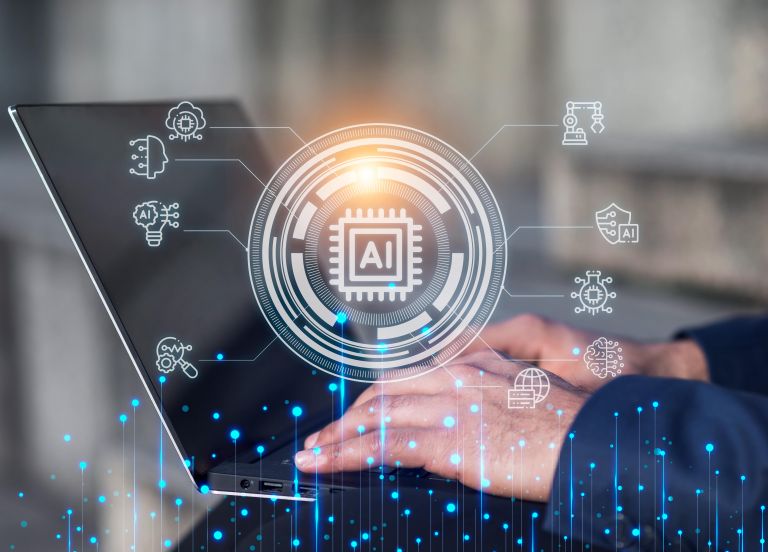Artificial Intelligence (AI) is revolutionizing numerous sectors, including the legal industry, where its impact is particularly transformative. By harnessing AI, legal professionals can significantly enhance the efficiency, accuracy, and accessibility of legal research. This technology enables the processing of vast amounts of legal data at unprecedented speeds, allowing for quicker insights and more informed decisions. Bronx Injury Lawyers, P.C. is at the forefront of this innovation, embracing the latest AI technologies in legal research to provide superior service to their clients. Their commitment to leveraging cutting-edge tools underscores the potential of AI to redefine legal practices and improve client outcomes.
Understanding AI in Legal Research
AI in legal research encompasses natural language processing, machine learning, and data analytics to sift through and interpret large datasets of legal information. These technologies facilitate the identification of relevant case laws, statutes, and legal precedents with a level of speed and accuracy that traditional research methods cannot match. The evolution of AI technologies has led to their integration into various legal research platforms, transforming them into powerful tools that can predict legal outcomes, automate mundane tasks, and offer strategic insights. This integration marks a significant advancement in how legal professionals conduct research, offering a glimpse into the future of the legal field where AI plays a central role in enhancing the delivery of legal services.
The Benefits of AI for Legal Professionals
Integrating Artificial Intelligence (AI) into legal research offers significant benefits for legal professionals. By rapidly processing vast amounts of legal documents, case law, and legislation, AI drastically reduces the time required for legal research. It has the unique ability to sift through extensive legal databases to uncover relevant case precedents, analyze legal trends, and even predict outcomes with remarkable precision.
Challenges and Considerations
Concerns regarding data privacy are paramount, given the sensitive nature of many legal documents. Additionally, while AI can predict outcomes based on historical data, the accuracy of these predictions and the potential for bias in AI algorithms necessitate careful consideration. There is also a crucial need for human oversight to interpret and apply AI-driven insights appropriately.
Revolutionizing Legal Research with AI
Artificial Intelligence (AI) is dramatically altering the landscape of legal research, automating routine tasks, and furnishing lawyers with strategic insights that were previously unimaginable. AI’s ability to process and analyze legal information at unprecedented speeds allows legal professionals to focus on more complex aspects of their cases. From predictive analytics to natural language processing, AI tools are not just streamlining workflows but also enhancing the precision and depth of legal research, enabling lawyers to navigate the vast sea of legal documents with ease and efficiency.
Streamlining Document Review and Analysis
AI tools stand out by streamlining document review and analysis by rapidly analyzing documents for relevance, flagging critical information, and suggesting related legal materials. This capability significantly reduces the time and effort required for manual review, freeing legal professionals to concentrate on crafting arguments and strategies. AI-driven tools can sift through thousands of pages in minutes, identifying patterns and connections that might escape human reviewers, thereby ensuring no critical piece of information is overlooked.
Enhancing Legal Strategy with Predictive Analytics
AI’s application in enhancing legal strategy through predictive analytics represents a significant leap forward. By analyzing historical data and legal trends, AI offers predictions on case outcomes, providing lawyers with valuable insights that inform more robust legal strategies. This use of AI not only aids in anticipating opposing arguments but also in assessing the potential success of various legal maneuvers, empowering lawyers to make data-driven decisions that can steer cases toward favorable outcomes.
The Future of AI in Legal Research
The future of AI in legal research promises even more sophisticated predictive analytics and personalized legal assistance. Developments in AI technology are expected to refine the accuracy of outcome predictions and offer tailored solutions that address the specific needs of each case. This evolution will further enhance the ability of legal professionals to anticipate challenges and devise effective strategies. Bronx Injury Lawyers, P.C., remains dedicated to staying at the cutting edge of these technological advancements, ensuring that their clients benefit from the most innovative and effective legal resources available.
Conclusion
The transformative impact of AI on legal research has revolutionized how legal professionals approach their work, offering unprecedented efficiency, accuracy, and strategic depth. By automating time-consuming tasks and providing insightful analytics, AI has empowered lawyers to focus on the nuances of their cases and develop more compelling arguments. Bronx Injury Lawyers, P.C. leverages these advancements in AI to enhance their legal research and advocacy, ensuring that their clients receive the highest quality of representation. As the legal industry continues to evolve with these technologies, embracing AI in legal practices promises to drive successful and innovative outcomes, setting a new standard for excellence in legal services.
 Español
Español

